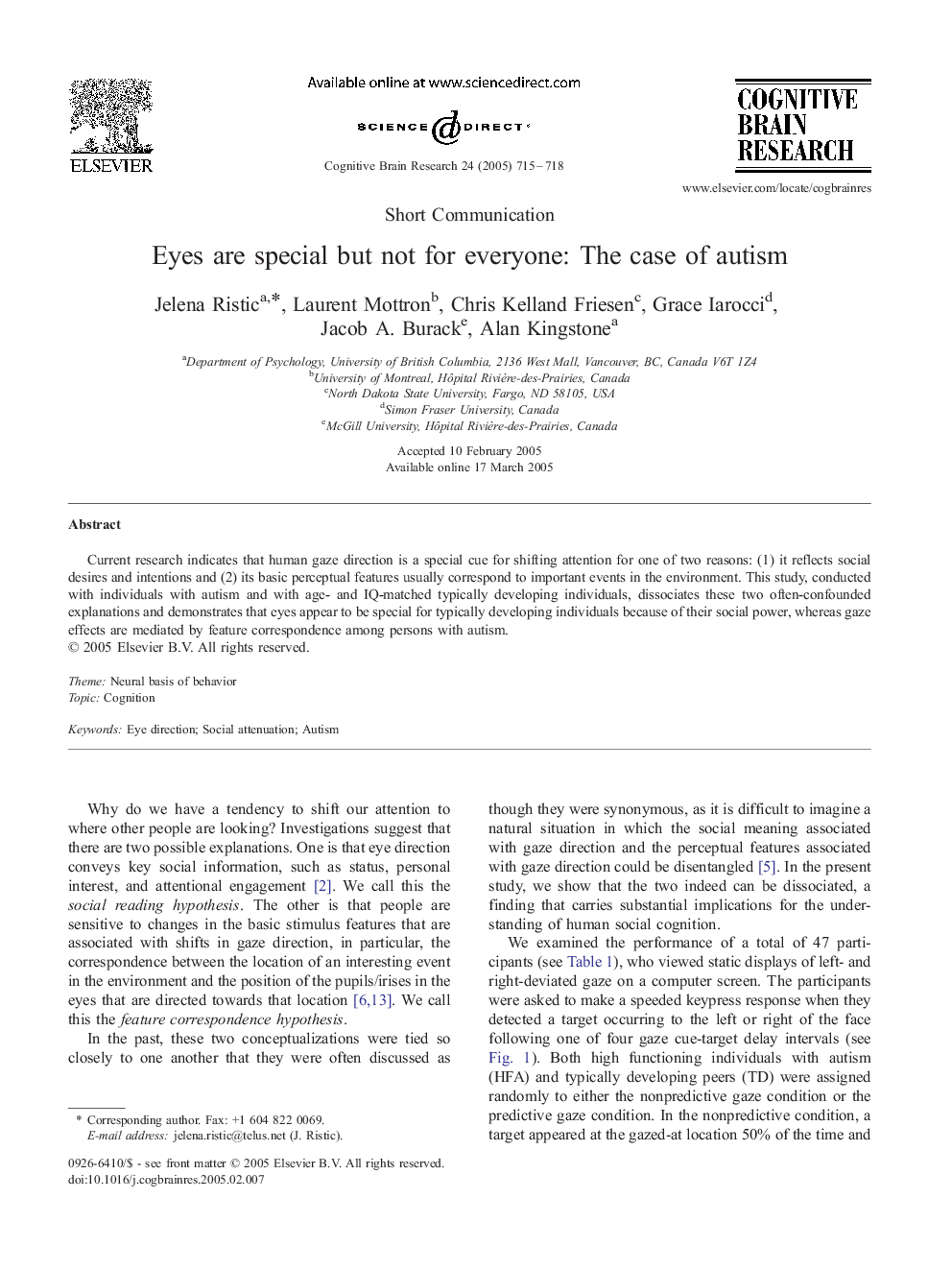| Article ID | Journal | Published Year | Pages | File Type |
|---|---|---|---|---|
| 9408041 | Cognitive Brain Research | 2005 | 4 Pages |
Abstract
Current research indicates that human gaze direction is a special cue for shifting attention for one of two reasons: (1) it reflects social desires and intentions and (2) its basic perceptual features usually correspond to important events in the environment. This study, conducted with individuals with autism and with age- and IQ-matched typically developing individuals, dissociates these two often-confounded explanations and demonstrates that eyes appear to be special for typically developing individuals because of their social power, whereas gaze effects are mediated by feature correspondence among persons with autism.
Related Topics
Life Sciences
Neuroscience
Behavioral Neuroscience
Authors
Jelena Ristic, Laurent Mottron, Chris Kelland Friesen, Grace Iarocci, Jacob A. Burack, Alan Kingstone,
